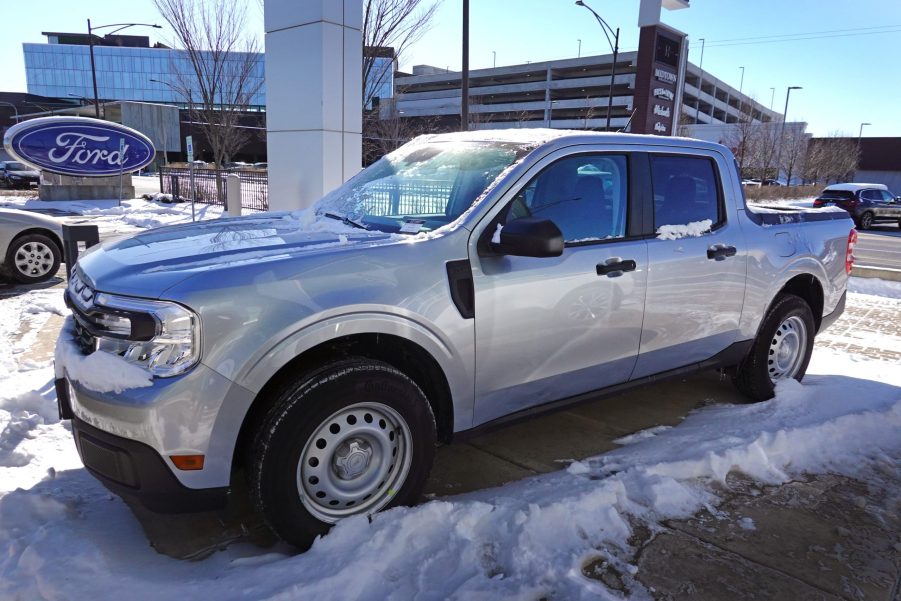
What’s the Real Difference Between a Midsize Truck and a Compact Pickup?
In 2020, more Americans opted to buy pickup trucks than cars. Because of that, it is no surprise that manufacturers are investing heavily in this segment. While models like the Ford F-150 and Ram 1500 may be increasing in popularity, a full-size truck is not right for everyone. And that is where compact and mid-size trucks come in. But in an ever-growing market, it may be confusing to determine what qualifies a truck as compact or mid-size. While these two kinds of vehicles may appear relatively similar on the surface, there are several key differences that can be used to separate them. So, how do compact trucks compare vs mid-size trucks?
What defines a compact truck?

A compact truck is a vehicle that offers the benefits of an open bed while retaining a smaller stature. And although trucks seem to grow bigger and bigger every year, there has been an uptick in compact trucks. These models are ideal for urban environments or those who do not find themselves needing the capability of a full-size truck.
Brands like Hyundai and Ford have released two models that could be categorized as compact. These include the Hyundai Santa Fe and the Ford Maverick. They offer a more car-like driving experience when compared to other models. However, they still retain the convenience of an open bed and features like all-wheel drive.
Typically speaking, a compact truck will also be unibody. Meaning the body of the vehicle also functions as the frame. This can decrease capability but does improve driving comfort. Differences in suspension can also be expected.
As truck nomenclature continues to change, current offerings may find themselves entering the compact truck segment. This includes the Honda Ridgeline. Which is a small truck based on the Honda Odyessy and Honda Pilot platform.
What is a mid-size truck?

Mid-size trucks are traditionally body-on-frame and share many similarities with their full-size counterparts. The mid-size truck segment includes models like the Toyota Tacoma, Chevy Colorado, and Ford Ranger. These trucks offer true four-wheel-drive systems. Which adds to their ruggedness.
Additionally, a mid-size truck will be larger than a compact truck. They deliver on more traditional bed sizes and more interior space. Making them ideal to fulfill a variety of automotive roles.
Other mid-size truck options include the Nissan Frontier. Until 2020, this truck offered old-school features like a manual transmission. Some mid-size trucks even deliver on luxury, like the GMC Canyon Denali. Which boasts heated leather seats and other premium details.
What it boils down to, is that a mid-size truck will have a truck-like driving experience. Which may mean compromising on comfort in lieu of tough build and capability.
What does the future hold for trucks?

Change in the automotive industry is inevitable. As brands continue to evolve and change their lineups, the truck segment will likely become more crowded than it is today. This will be especially true if buyers show interest in smaller trucks.
Coupled with supply chain issues, the Ford Maverick has already gained so much traction that Ford is no longer taking orders. Before the truck even went on sale, Ford stated that it had already received 100,000 orders for its new compact truck.


